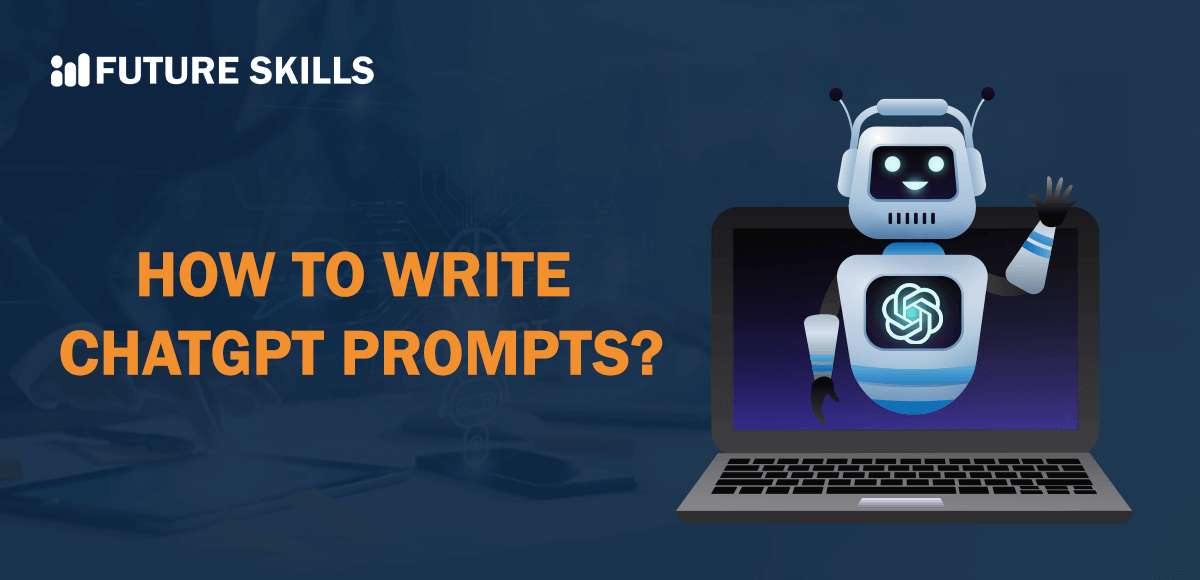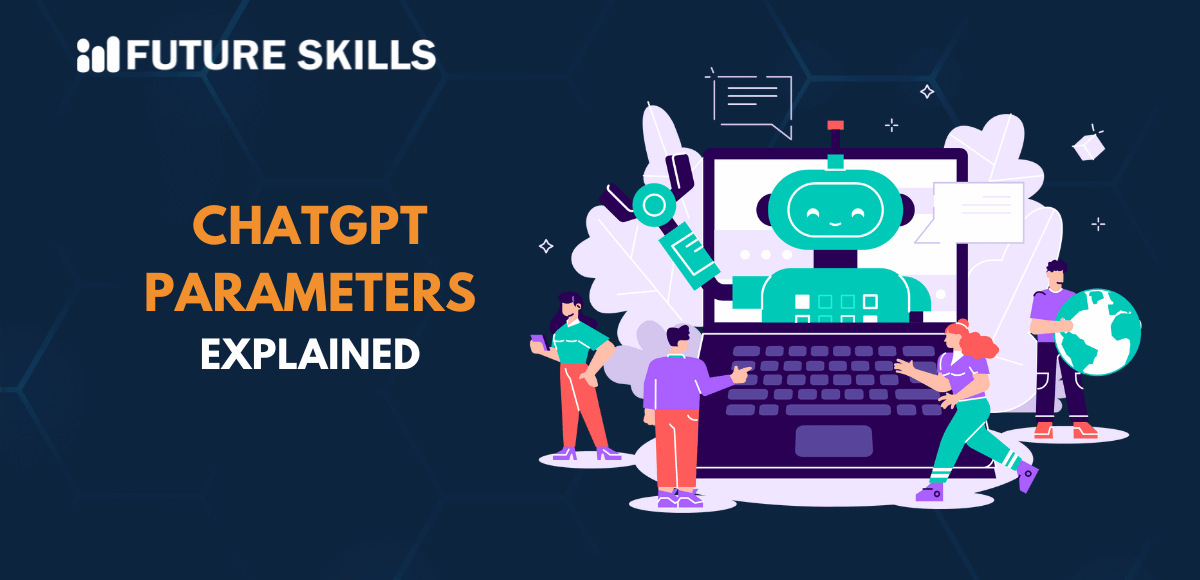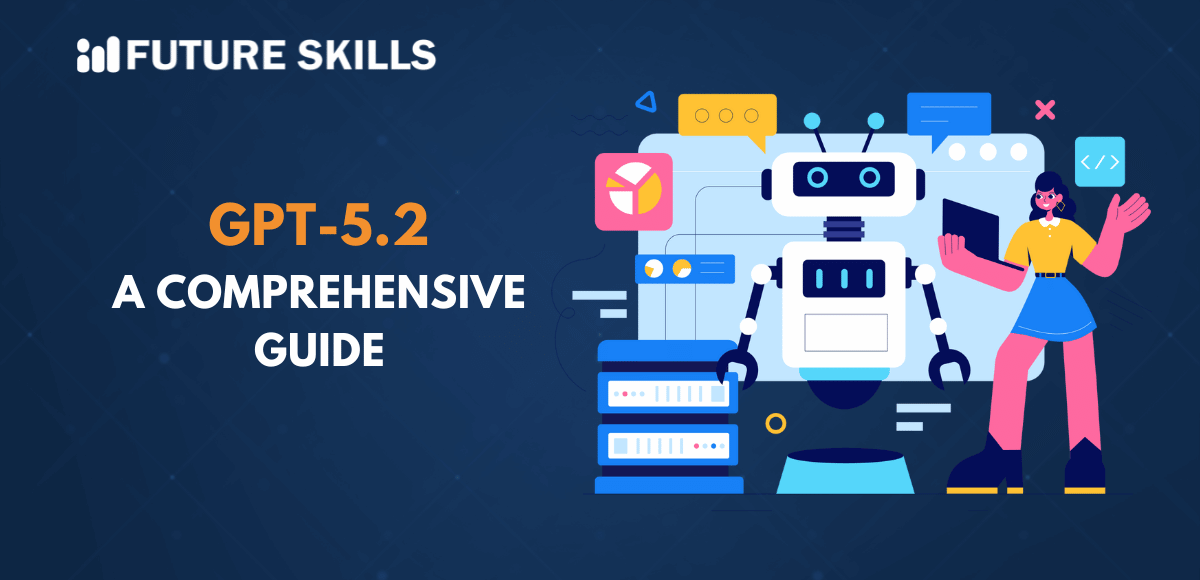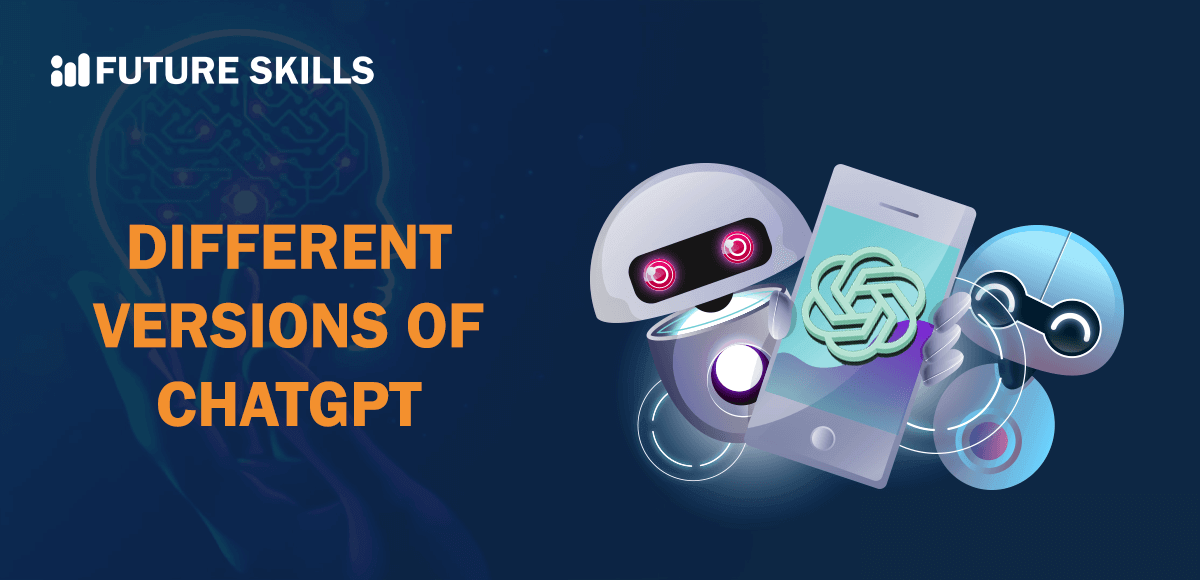ChatGPT, generative AI, and large language models emerged as the most prominent trends in the AI landscape in recent times. ChatGPT currently has more than 180 million users. The most surprising fact about ChatGPT is that it was able to garner 100 million users within five days. The adoption of ChatGPT gained momentum in different industries, leading to the effective use of ChatGPT prompts for writing and other tasks.
At the same time, it is important to note that ChatGPT is not an omniscient technology that can provide the right answer to all questions. On the contrary, ChatGPT is as effective as the prompts you feed into it. ChatGPT prompts include phrases and keywords arranged in a specific way to elicit replies from the generative AI tool.
You can think of ChatGPT prompts as questions or instructions, and the generative AI tool responds to prompts as though it is communicating with you. How can you get the right prompts to obtain accurate and contextually relevant responses? The answer would guide you toward prompt engineering.
It involves learning about the best practices for writing ChatGPT prompts and how to implement them. Better prompts can invoke better responses as ChatGPT has been trained on a massive amount of text data. Let us find out the best ways to write ChatGPT prompts that can help you obtain the desired responses.
Become a certified ChatGPT expert and learn how to utilize the potential of ChatGPT that will open new career paths for you. Enroll in Certified ChatGPT Professional (CCGP)™ Certification.
Working Mechanism of ChatGPT
The ideal approach to understanding the best practices for creating effective ChatGPT prompts involves understanding how ChatGPT works. You can develop the best ChatGPT prompts for writing and other use cases by diving deeper into the working of large language models or LLMs. Large language models are a type of AI system tailored for contextual understanding and generation of responses in natural language.
Subsequently, LLMs also use deep learning techniques to achieve improvements in scale of processing and generating text. ChatGPT draws responses to your queries from the data on which it has been trained. The datasets used for training ChatGPT include Common Crawl, WebText2, and Persona-Chat.
Common Crawl refers to the collection of text extracted from billions of web pages featuring trillions of words. WebText2 is a massive library of text data measuring more than 45 terabytes. On the other hand, Persona-Chat is the dataset of OpenAI that includes more than 160,000 interactions between users and distinct personas. ChatGPT breaks down your prompt and tries to understand what you are asking for. Subsequently, it would browse through the training dataset and present the response to users.
Level up your ChatGPT skills and kickstart your journey towards superhuman capabilities with Free ChatGPT and AI Fundamental Course.
How Can You Write Effective ChatGPT Prompts?
The task of writing ChatGPT prompts might seem challenging for beginners as well as seasoned professionals. On the other hand, curiosity about questions like “How do you write an effective ChatGPT prompt?” also draws the limelight toward significance of prompts. ChatGPT prompts play a crucial role in determining the accuracy of the response and whether it is contextually relevant to the query. Therefore, it is important to keep the following best practices in mind while writing prompts for ChatGPT.
-
Define the Context of the Prompt
The best way to write prompts for ChatGPT involves the use of relevant details that can help the generative AI platform understand the specific context or scenario for the query. As a result, such prompts can help in deriving accurate replies from ChatGPT. You can define the context in a prompt by using information such as user preferences, background information, and specific facts. For example, “Write about a new product” is a generalized prompt. On the other hand, prompts like ‘write about the advantages of a new health and wellness product’ can offer context to ChatGPT.
-
Offer Reference Material to ChatGPT
ChatGPT might have grabbed headlines for being an AI tool that can answer all your questions. However, it is important to note that ChatGPT is extremely limited in terms of its scope and capabilities. ChatGPT cannot browse the internet without using plugins or the paid subscription plan.
Therefore, the top practices for writing ChatGPT prompts require that you provide references to help ChatGPT generate more accurate references. You must offer reference material in prompts for specific scenarios, such as requirement of domain-specific knowledge and fact-checking. Brands can share content with ChatGPT to help it ensure consistency with the brand value and tone.
You can also include specific guidelines in ChatGPT prompts, such as compliance and legal requirements, to obtain contextually relevant responses. If you want ChatGPT to provide accurate responses on events that transpired after September 2021, then you must provide information about the events in the prompt.
-
Clear Specification of the Task
ChatGPT might offer the same experience that you would have talking with another human. However, it is not a replacement for another human or subject matter expert. ChatGPT cannot understand what you want from it just by looking at the prompt.
The best practices to create ChatGPT prompts for writing and other use cases require users to provide a clear impression of the topic or task that they want to achieve with ChatGPT. It helps to ensure that the answers focus on the specified topic or task and do not deviate towards ambiguous answers.
You must avoid using generic prompts such as “Tell me about marketing strategies.” On the contrary, you can use prompts like, “Describe the ideal traits of a successful digital marketing strategy.”
-
Specify the Parameters
Another important addition among best practices to create effective ChatGPT prompts focuses on specification of parameters. You must provide clear specifications of constraints to guide ChatGPT’s response within specific boundaries. The best practices for writing ChatGPT prompts suggest that you tell ChatGPT how many characters, sentences, and words you want in the response. You must also define the number of outputs you want from ChatGPT for your question. On top of that, you must also specify the particular references, data points, and examples you want in the response.
-
Provide Clear Depiction of Response Format
The best practices for creating ChatGPT prompts also invite attention to the need for the right format. With specification of output format in the prompt, ChatGPT can tailor its response to align with the desired content. You must explicitly state the type of format, such as a meta-description or a short story. On top of it, users can also ask ChatGPT to serve the response in bullet points, paragraphs, or a combination of both. With the right prompts, you can ask ChatGPT to describe advantages and setbacks or step-by-step instructions.
-
Continuous Refinement
In some cases, crafting a ChatGPT prompt with utmost care can also leave you disappointed. If you have tried the best ChatGPT prompts for writing or other uses, then you need to take a step further. You need to edit or refine the original prompt when it does not elicit desired responses from ChatGPT. You can also try re-prompting using different words to achieve better results from ChatGPT. The best practices for refining prompts in ChatGPT include editing the original prompt or adding another prompt that leverages specific instructions.
Level up your AI skills and embark on a journey to build a successful career in AI with our Certified AI Professional (CAIP)™ program.
How Can You Achieve Fluency in Writing ChatGPT Prompts?
The job of a prompt engineer is the most valuable one in the generative AI landscape right now. With impressive growth in adoption, ChatGPT has opened multiple career opportunities for prompt engineers. People want to learn the answers to “How do you write an effective ChatGPT prompt?” and capitalize on lucrative benefits.
For example, the average annual salary of prompt engineers ranges from $175,000 to $335,000. On top of that, the best practices for creating effective ChatGPT prompts can help users make the most of ChatGPT. Here are some of the recommended suggestions to hone your fluency in creating effective ChatGPT prompts.
Communicate with ChatGPT as if it were a real person.
Always set the stage and context for ChatGPT in the prompt to elicit accurate and relevant responses.
One of the best ways to master ChatGPT prompts for writing and other use cases is to allocate an identity to ChatGPT. You can use prompts to offer instructions to the generative AI tool to assume a specific identity based on a profession or role.
Most importantly, you should never hesitate to play with ChatGPT and its different functionalities. You can experiment with the generative AI tool by using different types of prompts and observing its responses.
Excited to understand the crucial requirements for developing responsible AI and the implications of privacy and security in AI, Enroll now in the Ethics of Artificial Intelligence (AI) Course
Final Words
ChatGPT is a revolutionary tool in the continuously expanding AI landscape. It has become the frontrunner in the generative AI market within a short period of time. The impressive growth of ChatGPT invites attention to top practices for writing ChatGPT prompts, as the right prompts elicit accurate and relevant responses from ChatGPT. While many people assume that ChatGPT is a ‘know-it-all’ AI chatbot, it has its setbacks.
For example, it has been trained on text data prior to September 2021. You can find a way around the limitations of ChatGPT by designing the right prompts. Prompt engineers can find multiple career opportunities for their skills to obtain accurate and desired responses from ChatGPT. Learn more about prompt engineering and find the best ways to create effective prompts right away.






